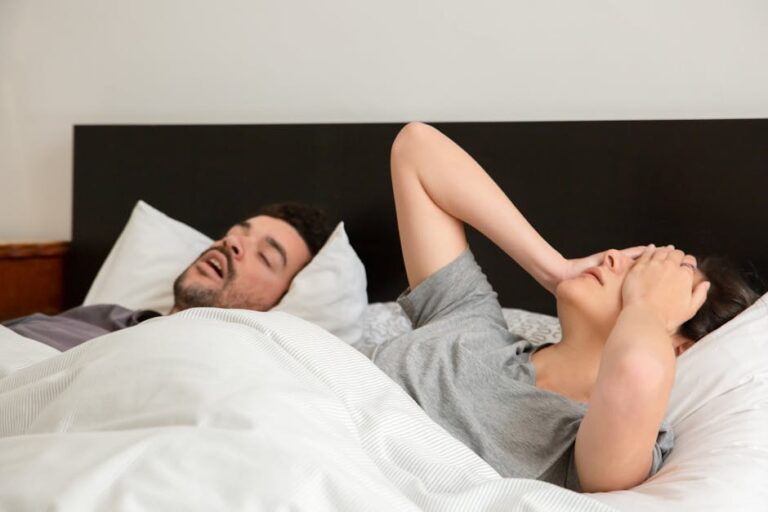The Rise of Sleep Divorce: Key Statistics
In recent years, the trend of sleep divorce has gained traction, captivating couples seeking to enhance their sleep quality and relationship fulfillment. This phenomenon reflects a shift in how we prioritize rest and intimacy, aiming for healthier interactions while managing the complexities of modern life.
Understanding Sleep Divorce
What is Sleep Divorce?
Sleep divorce refers to couples who opt for separate sleeping arrangements—often in different beds or rooms—to foster better sleep quality and improve overall relationship dynamics. This solution has become increasingly popular as individuals acknowledge how crucial restful sleep is for their mental and physical health.
According to a recent survey from the American Academy of Sleep Medicine (AASM), one-third of American couples occasionally or regularly sleep apart to accommodate the sleep needs of their partners. This statistic highlights a growing acceptance of prioritizing personal comfort over adhering to traditional sleeping arrangements.
Key Statistics on Sleep Divorce
1. Prevalence of Sleep Divorce
Approximately 1 in 3 Americans now occasionally or consistently sleep in a separate room due to their partner’s habits. This underscores a significant societal shift towards valuing sleep quality.
2. Improved Sleep Quality
Over 52% of individuals practicing sleep divorce report enhanced sleep quality. On average, these individuals gain an additional 37 minutes of sleep each night compared to when they shared a bed.
3. Gender Discrepancies
Men appear to be more inclined to embrace sleep divorce, with nearly 45% choosing to sleep separately, compared to around 25% of women. This trend may be influenced by common factors like snoring or restless sleep.
4. Generational Insights
Millennials lead the sleep divorce movement, with 43% opting for separate sleeping spaces. Generation X follows at 33%, while Generation Z shows that 28% prefer sleeping apart. Baby boomers represent the smallest group, with only 22% participating in sleep divorce.
Why Couples Choose Sleep Divorce
Common Reasons for Separate Sleeping Arrangements
Several factors drive couples towards sleep divorce:
– Snoring: One partner’s loud snoring can disrupt the other’s sleep, prompting some to seek refuge in separate rooms.
– Different Sleep Schedules: Mismatched bedtimes, such as one partner being a night owl while the other goes to bed early, can hinder quality sleep.
– Sleep Disorders: Conditions like sleep apnea create disturbances that affect both partners’ sleep quality.
For instance, Nikki Gonzales and her husband Nathan have been sleeping separately for a year due to their differing schedules. Nikki notes, “Having our own space works exceptionally well for us.”
Benefits of Sleep Divorce
1. Enhanced Sleep Quality
The primary advantage of sleep divorce is improved sleep quality. By allowing each partner to follow their natural sleep cycles, they can experience more restorative rest.
2. Reduced Stress Levels
Quality sleep is integral to managing daily stress. Poor sleep often leads to increased irritability, which can escalate conflicts between partners. By prioritizing sleep through separate arrangements, couples often report a calmer home environment.
3. Fewer Arguments
Research indicates that sleep deprivation can magnify conflicts. By sleeping apart, couples reduce the likelihood of arguments that stem from tiredness and irritability.
4. Improved Mood
A well-rested person is generally happier and less anxious. Many who have adopted sleep divorce report feeling more balanced and content, enhancing their overall relationship satisfaction.
Potential Downsides of Sleep Divorce
While sleep divorce offers numerous benefits, it’s essential to consider the potential drawbacks:
1. Decreased Intimacy
Sleeping separately can reduce physical closeness, impacting emotional bonds. Couples need to find ways to maintain intimacy, even when sleeping apart.
2. Reduced Bonding Time
Shared sleeping provides opportunities for conversation and connection. When couples sleep separately, they may miss out on these intimate moments.
3. Relationship Misunderstandings
The decision to sleep apart can sometimes be misinterpreted as a sign of underlying relationship issues, causing emotional distance if not communicated properly.
Conclusion
The rise of sleep divorce is reshaping how couples approach their nightly routines and relationships. As more individuals prioritize sleep quality, they are finding that sleeping separately can lead to improved mental, emotional, and relational well-being.
Whether partners choose to sleep together or apart, effective communication remains crucial. Couples should openly discuss their sleep needs and preferences, paving the way to mutually satisfying arrangements. By fostering an understanding of sleep divorce’s potential benefits and challenges, couples can create a more harmonious and rejuvenating environment.
In conclusion, sleep plays a pivotal role in our relationships. Sleep divorce can be an effective strategy for enhancing both sleep quality and relationship health. Embracing this trend may lead to healthier, happier partnerships equipped to navigate the complexities of modern life. Prioritizing rest is not merely a personal choice; it’s a pathway to nurturing enduring connections and sustaining overall well-being.

